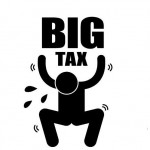
Explained, General, Market Watch
Political Events in Review from TWM
March 1st – 7th
• Thousands of Russians attended the funeral of Boris Nemtsov, an opposition politician who was murdered in Moscow two days before he was due to take part in a rally to protest against the war in Ukraine.
• The leader of Turkey’s Kurdish rebels, Abdullah Ocalan, called on his Kurdistan Workers’ Party (PKK) to end the armed struggle it has waged against the Turkish state since 1984.
• Kenya burned 15 tonnes of ivory with a black-market value of $30m in an effort to stigmatise the trade and curb poaching.
• Benjamin Netanyahu gave a speech to the American Congress, where he had been invited by the Republicans without bothering to consult the White House.
• America’s Justice Department released its report into policing in Ferguson, the town in Missouri where the shooting of a black teenager by a white policeman sparked nationwide protests.
• Hillary Clinton reportedly used a private e-mail account to conduct nearly all her official business when she was America’s secretary of state, a possible breach of rules intended to encourage transparency.
• A federal judge in Argentina dismissed allegations that the president, Cristina Fernández de Kirchner, and officials interfered with the investigation of the bombing of a Jewish centre in 1994 in Buenos Aires in order to cover up the complicity of Iran. Alberto Nisman, the prosecutor who made that accusation, was found dead in January.
• The annual session of China’s rubber-stamp parliament, the National People’s Congress, began in Beijing.
• Police in Hong Kong arrested more than 30 people in connection with a protest against shoppers from the Chinese mainland.
March 8th – 14th
• Russia detained five men from Chechnya, an unruly southern region, for the murder of Boris Nemtsov, an opposition politician who was recently shot in Moscow.
• Italy’s highest court confirmed the acquittal of Silvio Berlusconi on charges of paying for sex with an underage dancer in the “bunga bunga” sex case.
• Iraqi forces advanced into parts of Tikrit in their biggest offensive yet against Islamic State. Tikrit lies between Baghdad, the capital, and Mosul, a big city that fell to IS last year.
• The White House criticised the Republicans in the Senate for sending an open letter to Iran claiming that Barack Obama does not have the constitutional authority to negotiate a deal over its nuclear programme, suggesting that Congress could overturn an agreement.
• A Supreme Court justice in Brazil released the names of 34 politicians in office, mostly allies of the government, who are to be investigated in connection with the bribery scandal surrounding Petrobras, a state-controlled oil company.
• In Pakistan troops raided the headquarters of the Muttahida Qaumi Movement, or MQM, the biggest political party in Karachi, making arrests and seizing weapons.
• Police in Myanmar used batons to break up a student demonstration in Letpadan, a town 140km north of Yangon. The students were protesting against a bill that gives the government more powers over academic life.
March 15th – 21st
• Israel’s prime minister, Binyamin Netanyahu, confounded the pollsters by winning a resounding election victory. His Likud party won 30 seats against 24 for the rival Zionist Union, led by Yitzhak Herzog, in the 120-seat Knesset.
• Millions of people participated in rallies across Brazil against the government of Dilma Rousseff, the biggest protests the country has seen since the era of military rule.
• Venezuela’s National Assembly passed a law allowing the president, Nicolás Maduro, to rule by decree until the end of 2015. He asked for the powers after America froze the assets of seven leading members of Venezuela’s regime.
• Thailand’s Supreme Court ordered Yingluck Shinawatra, the prime minister deposed shortly before a military coup last year, to stand trial for malfeasance in office. Her hearing begins on May 19th.
• China and Japan held their first significant talks on security since 2011, another development in their attempt to ease tensions over rival territorial claims to islands in the East China Sea.
• Vladimir Putin reappeared in public after a ten-day absence that had fuelled speculation about a power struggle in the Kremlin. On the anniversary of Russia’s annexation of Crimea, he admitted that Western sanctions have damaged Russia’s economy.
• Aaron Schock decided to resign from Congress following reports about alleged irregular spending, including the lavish redecoration of his Washington office in a “Downton Abbey” style.
March 22nd- March 31st
• Relations between the White House and the government of Israel grew frostier. Senior officials leaked claims that Israel has spied on talks with Iran over a nuclear deal; and Barack Obama spoke of a “policy difference” with Israel regarding the establishment of a Palestinian state.
• Canada’s prime minister, Stephen Harper, announced that he would extend a campaign of air strikes against IS from Iraq into Syria.
• The race to be America’s next president semi-officially got under way when Ted Cruz became the first candidate to announce formally that he is running.
• At a meeting at the White House with the Afghan president, Ashraf Ghani, Barack Obama announced that he would keep nearly 10,000 American troops in Afghanistan until the end of the year.
• The foreign ministers of China, Japan and South Korea met in Seoul for their first trilateral talks at such a level in three years.
• Petro Poroshenko, the president of Ukraine, dismissed Igor Kolomoisky, a billionaire oligarch, as governor of Dnipropetrovsk.
• Angela Merkel, Germany’s chancellor, and Alexis Tsipras, the prime minister of Greece, held a cordial meeting in Berlin and vowed to work on keeping Greece in the euro zone.
• France’s National Front came second in departmental elections with 25% of the vote, a modest setback for the party, which had been widely expected to finish first. The centre-right UMP, led by Nicolas Sarkozy, took first place.
• David Cameron said that he would not seek a third term as Britain’s prime minister, just weeks ahead of going to the polls in an election at which voters will decide whether to give him a second term.

Written and delivered by Paul McLardie, Total Wealth Management
Partner & Member of the Investment Committee
paul.mclardie@t-wm.com

Related News:
Political Events, World Business, World Economy, World News, Worldwide Politics









Comments RSS Feed